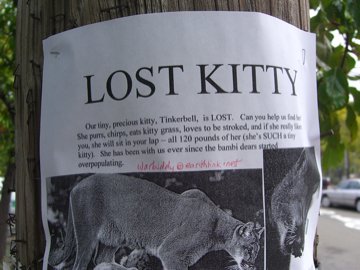This morning, a friend sent me a link to a column in Sunday’s New York Times that compared the physical demand of the Tour de France on cyclists with the stresses that elite marathon runners endure. Which is tougher? There’s no way to tell, the article suggests, because the events are fundamentally different in what they demand of the body; the lone certainty is that both events require extraordinary athletic talent and training. I noted that the picture that accompanied the Times piece was of Alexander Vinokourov, the Kazakh cyclist; you couldn’t see his face, but he was identifiable from his team “kit” — its uniform — and rider number in this year’s Tour — 191.
A little while later, another friend emailed me with a news flash he’d just seen: Vinokourov was out of the Tour, along with the rest of his team, after he had tested positive for receiving an illegal blood transfusion.
Vinokourov has been in the news a lot this Tour: A favorite at the start of the race, he was injured in a crash early on and persevered through severe pain. Last Saturday, he won an individual time trial, which suddenly put him close to the contenders again (as the stage winner, he was required to take the blood test that reportedly turned up evidence of cheating). On Sunday, he suffered a total collapse during a very hard day of racing in the Pyrenees and finished a calamitous half an hour behind the leaders. On Monday, he came back, winning another tough Pyrenees stage (the spectacle of a rout followed immediately by triumph was reminiscent of Floyd Landis’s unprecedented defeat and resurgence in back-to-back stages last year; soon after, a blood test suggested Landis had been doping, too).
Vinokourov was — the past tense is all you can use — no ordinary cyclist. Beyond the talent necessary to make him competitive with the world’s best, he had a frightening willingness to attack at any moment, no matter the apparent odds of success or physical cost to himself. He finished third in the Tour in 2003; his ferocity stage after stage kept the eventual winner, Lance Armstrong, on the defensive most of the race. Another rider, David Millar, reportedly wept when he heard today’s news about Vinokourov and called him “one of the most beautiful riders in the peloton.”
Millar’s got a special perspective. A spectacularly talented rider himself, he won the world time-trial championship before police caught him with EPO, a substance that enhances the blood’s ability to carry oxygen. Millar never had a positive doping test in his entire career, but confessed he had used the banned drug after he was confronted with the evidence. He was banned from racing for two years and came back for last year’s Tour; he is now one of the loudest voices against doping in cycling, but he was crushed today.
Velonews reported his reaction:
David Millar was the first rider to react to the news: “Jesus Christ – there you go, that’s my quote,’ he blurted out. ‘What timing, huh? This is just fucking great. … It makes me very sad. Vino is one of my favorite riders. He’s one of the most beautiful riders in the peloton. If a guy of his stature and class has done that, we all might as well pack our bags and go home right now. ‘
“…Millar broke down into tears when he was asked by British journalist Jeremy Whittle if he was all right, saying, ‘I just feel like crying right now.’ ”
After the news broke, the Tour de France organizers held a press conference. They decried the doping, of course. But they said that the race will go on to its conclusion in Paris next Sunday no matter what. Otherwise, the dopers would win. It’s a nice line, but a little hollow. During the same session with reporters, the Tour people also said the current yellow jersey, Michael Rasmussen, would not have been allowed to race had they known of his recent violation of dope-testing rules (he failed to apprise anti-doping officials of his whereabouts and missed several random tests).
The problem the Tour and all of bicycle racing has — and it’s one that extends to other sports, too — is that it’s no longer possible to believe the competitors are clean. (Well, with one exception: Seeing what David Millar has gone through in his career, he’s one guy I’d bet is riding the Tour clean. I wouldn’t put my money on anyone else, though.) It’s hard to really engage with what looks like a stirring athletic performance if you’re wondering in the back of your mind whether the fix is in. Too bad — though I’ll still be watching the race tomorrow.
Technorati Tags: cycling, tour de france, tv, versus, vinokourov


